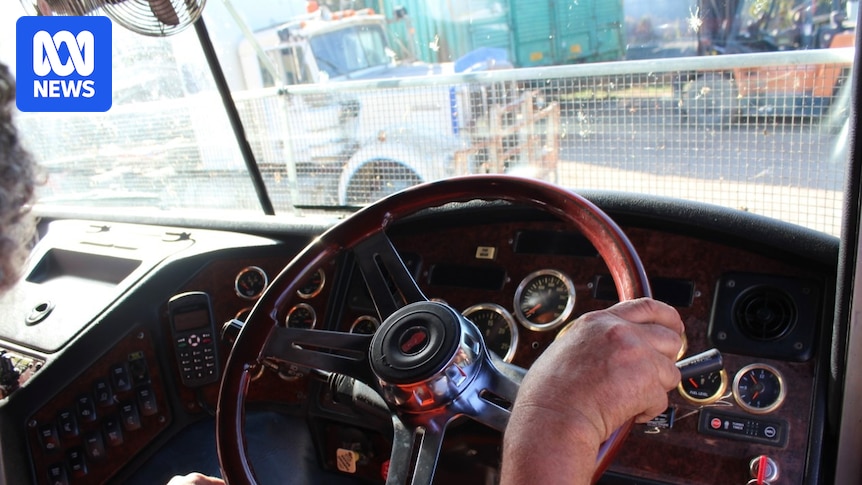Doug McMillan loves his job in the trucking sector, but it negatively impacts his health.
Key Points:
A recent report from Monash University is believed to be the first to measure the economic impact of health issues prevalent in the trucking industry. A researcher argues that solutions need to be initiated from within the industry, which could save lives and reduce costs. An experienced truck driver from Albury notes that previous attempts to tackle these concerns have failed.
Mr. McMillan has over 50 years of experience as a truck driver and operates a small fleet in Albury, New South Wales.
Despite trying to maintain a healthy diet while on the road, he, like many drivers, confronts obesity and other health complications frequently found in the trucking profession.
“We’re our own worst enemy,”
Mr. McMillan expressed.
He noted that fast food is particularly appealing to truck drivers, with convenient meals like steak and chips or roast beef rolls becoming common choices on the road.
Monash University researchers have now estimated the substantial costs associated with these health trends in what is considered a pioneering report. They project that the poor health of male Australian truck drivers could lead to over 6,000 worker deaths and a loss of $2.6 billion in productivity over the next ten years.
Associate Professor Ross Iles, the program lead, emphasized the need for a collective industry effort to tackle this issue. “The figures are quite alarming,” Dr. Iles remarked, suggesting it is essential to not just focus on cargo but also consider the health of drivers.
Food Labels and Exercise Recommendations
Unsuccessful Healthy Eating Initiatives
As an employer and a long-time industry representative, Mr. McMillan has participated in initiatives aimed at promoting better diet choices for truck drivers.
However, he reported that these efforts have not gained traction. “We’ve been attempting to persuade truck drivers to make healthier food choices for years, and we’ve had little success,” Mr. McMillan stated.
“It’s a personal issue for me. We had a team of eight to ten drivers, and we strived to encourage proper nutrition, but it never worked.”
According to Mr. McMillan, the toll of this lifestyle becomes even more significant as drivers age.
“As you age, the effects become more apparent,” he noted.
Dr. Iles pointed out that no single solution exists, but industrial reforms are necessary. “We can’t solely depend on drivers to improve their health with an app that promotes healthy eating and exercise,” he explained. “The entire industry must collaborate to alleviate the pressures faced by drivers.”
Find More Local News
Explore your area to discover more local ABC News and information.


